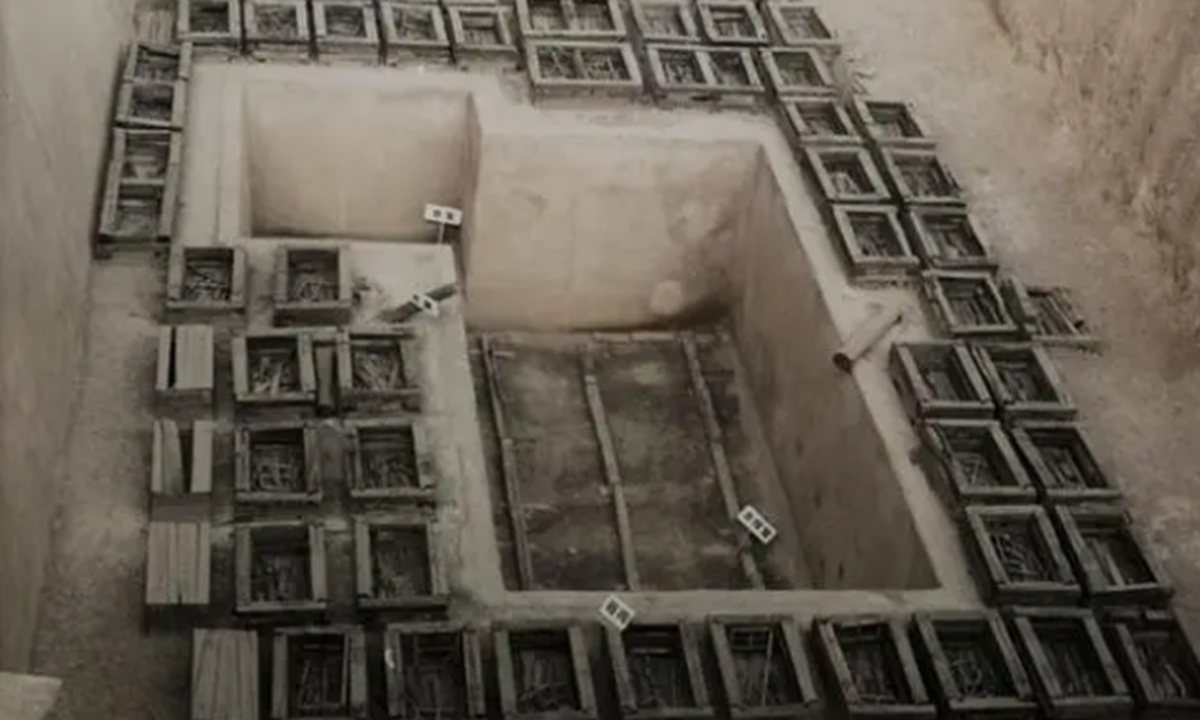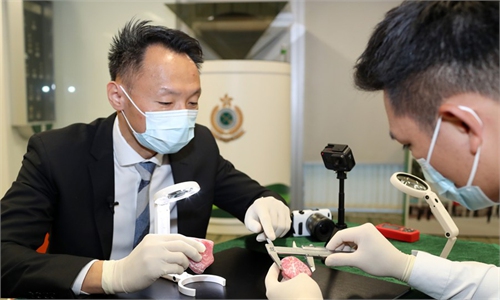
The Qin Gong No.1 Tomb in Baoji city, Northwest China's Shaanxi Province Photo:Sina Weibo
Covering a total of 500 square meters, a new excavation project was recently launched to look further into the Qin Gong No.1 Tomb in Baoji city, Northwest China's Shaanxi Province, so far the largest pre-Qin Dynasty (221BC-206BC) tomb ever discovered in China.The new project is mainly focused on investigating a horse-carriage pit. Archaeologist Wang Meng told the Global Times that burying "ancient vehicles" was a tradition that was popular from the Shang Dynasty (c.1600BC-1046BC) to the Han Dynasty (206BC-AD220).
"A horse-carriage pit is normally found at higher-grade tomb ruins, so it is an indicator an archaeologist uses to identify the importance of a tomb," Wang noted.
The Qin Gong No.1 Tomb is also known as the No.1 Tomb of King Qin. It belonged to Qin Jinggong, the Emperor of the Qin vassal state during the Spring and Autumn period (770BC-476BC).
The current horse-carriage pit to be investigated was first found in 1977. Ranging 87.6 meters in length and 14.5 meters in depth, the pit is also the largest burial pit in the tomb cluster.
Prior to the 2023 project, the pit was investigated in 2019 and 2021 respectively with more than 300 precious relics discovered, including gold, bronze, jade and also bone artifacts.
Over 20 dazzling gold wares were found with fascinating engravings in patterns such as gold birds, leaves and also tigers.
Archaeological expert Xue Ruiming told the Global Times that those discoveries "once again prove the tomb's high grade" and also shows ancient Chinese people's "ingenuity and imagination when it comes to craftsmanship."
The discovery of the Qin Gong No.1 Tomb has set another notable record in China's archaeological history, as Xue told the Global Times that a stone chime engraved with 180 Chinese characters was found at the site, the earliest example of a stone chime with characters.
"The new round of archaeological discoveries can inspire the future study of the Qin Dynasty's funeral culture," Wang told the Global Times.



